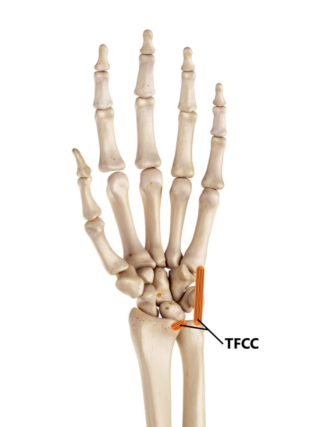Conditions
Medical Conditions We Treat ..
Musculoskeletal Conditions
Joints & Bones
Frozen Shoulder (Adhesive Capsulitis)
Neck & Spine
Degenerative Disc Disease(DDD)
Herniated Discs(Bulging Discs)/Slipped Disc
Muscles
Neurological conditions
TFCC Injury – Wrist Injury
The triangular fibrocartilage complex (TFCC) is a cartilage structure located on the small finger side of the wrist that cushions and supports the small carpal bones in the wrist. The TFCC keeps the forearm bones (radius and ulna) stable when the hand grasps or the forearm rotates. An injury or tear to the TFCC can cause chronic wrist pain.
There are two types of TFCC tears:
- Type 1 tears are called traumatic tears. Falling on an outstretched hand and excessive arm rotation are the most common causes.
- Type 2 TFCC tears are degenerative or chronic. They can occur over time and with age. The degenerative process wears the cartilage down over time. Some inflammatory disorders, such as rheumatoid arthritis or gout, may also contribute to Type 2 TFCC tears.

Causes
- fall onto an outstretched hand
- repeated impact on an outstretched hand (i.e. gymnastics)
- excessive torsion forces on the wrist (i.e. racket sports, pulling down on a heavy lever)
- sudden traction of the wrist
Symptoms
TFCC tears commonly cause pain along the outside of the wrist. Other symptoms can include:
- stiffness or weakness in the wrist
- pain when touching or moving the wrist
- a limited range of motion in the hand or wrist
- wrist swelling
- a clicking or popping sound when moving the wrist
Risk Factors
- older age
- individuals with a length discrepancy between the lower arm bones (ulnar variance)
- participating in sports/occupations subjecting the wrists to impact
- wrist fracture involving the joint line
Diagnosis
Diagnosing a TFCC injury is based on an individuals clinical presentation and imaging. In many cases imaging is not always necessary.
- Subjective and Physical Examination
- Xray
- MRI
